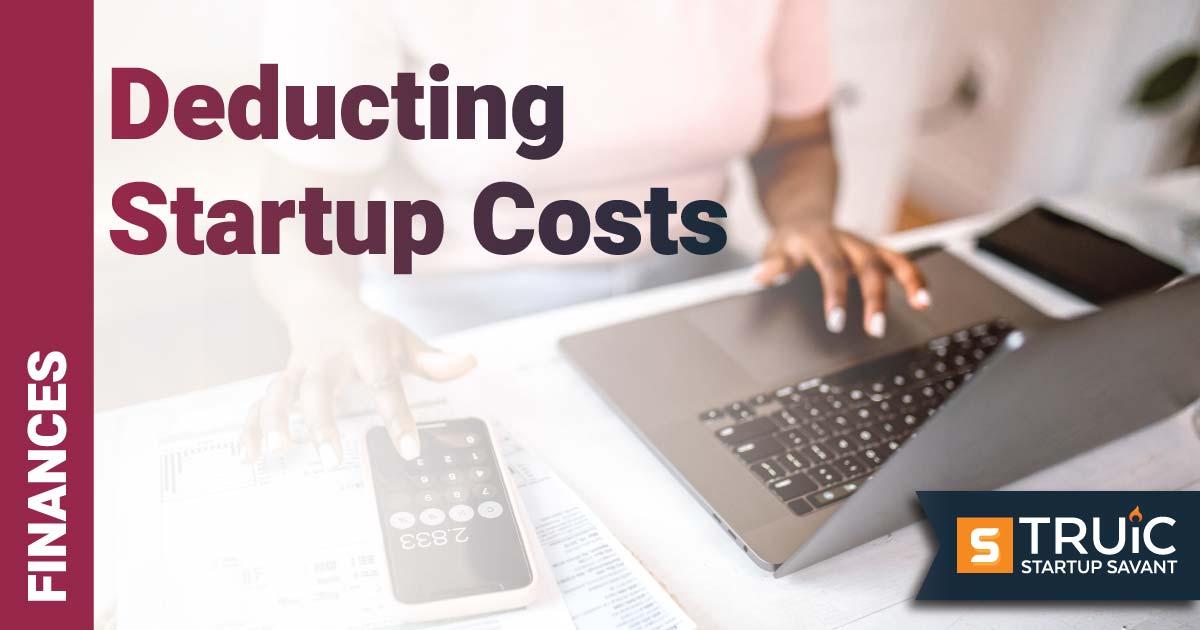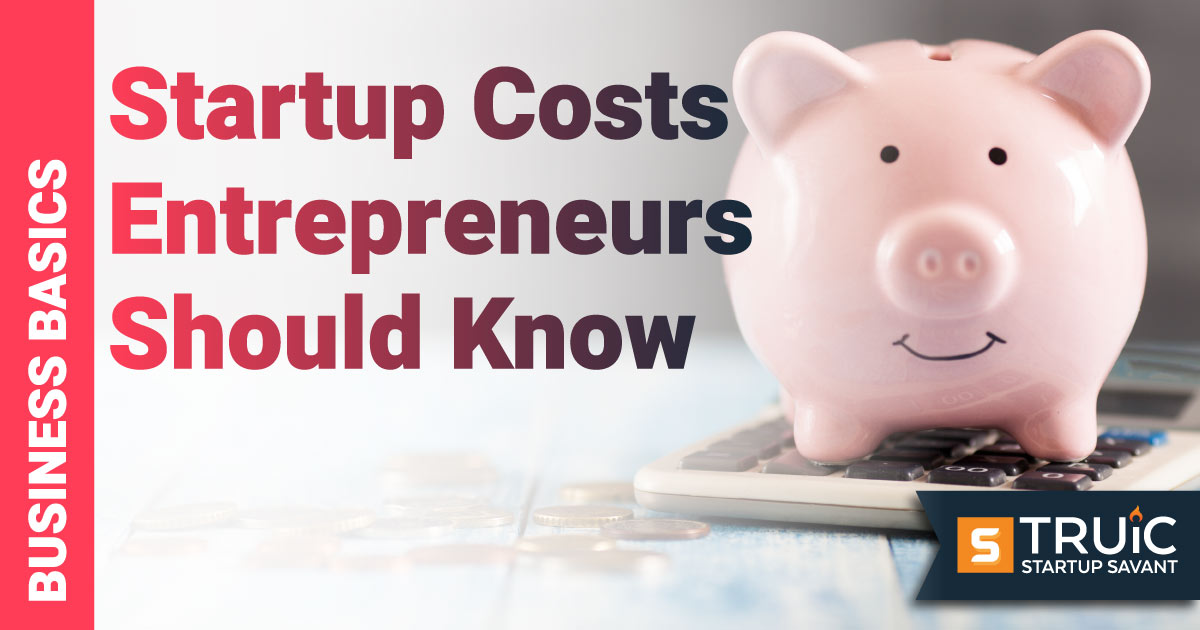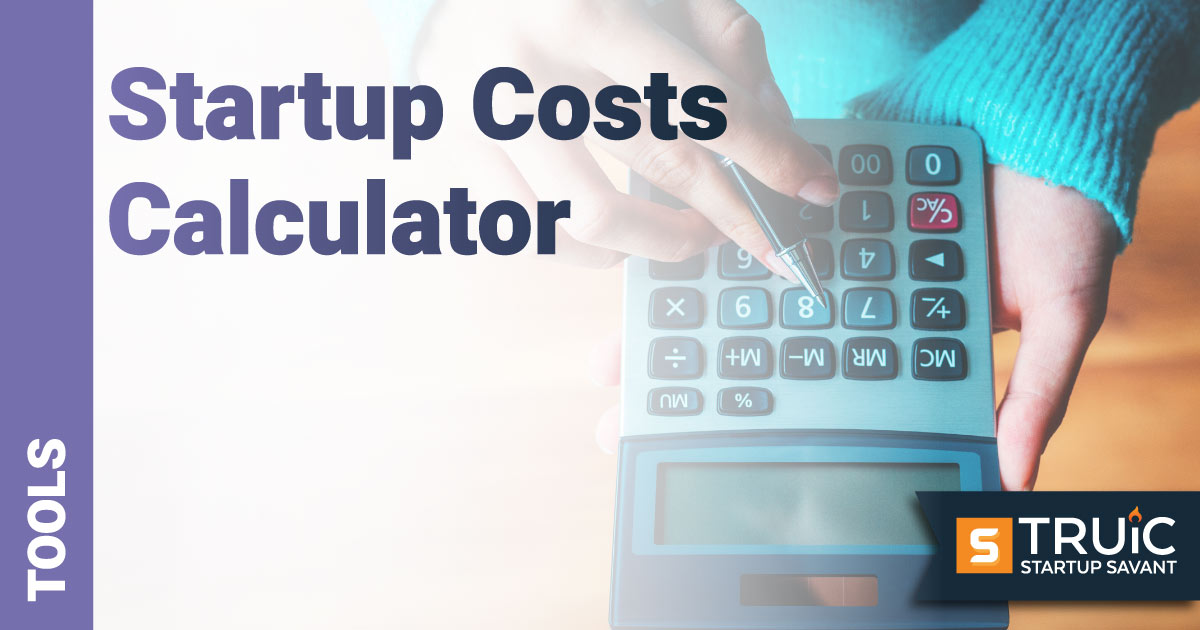How to Deduct Startup Costs

Last Updated: By Michaela Dale
Your first year of business accrues a lot of expenses from formation to equipment purchases. To offset this, you can claim a tax deduction for qualifying business expenses on your first-year income tax return or choose to amortize over several years.
Before you begin deducting startup costs, you need to know what business startup costs are deductible, the total amount of deductible expenses your business can claim, and how to claim them or opt for amortization.
What Business Startup Costs Are Deductible?
Deductible startup costs are expenses paid or incurred that can be recovered or written off on your business’s income taxes. By claiming qualifying deductibles on your startup income tax return, you can offset some of the expenses associated with starting and operating your business within the first year.
According to the Internal Revenue Service (IRS),” A start-up cost is recoverable if it meets both of the following requirements:
- It's a cost a business could deduct if they paid or incurred it to operate an existing active trade or business, in the same field as the one the business entered into.
- It's a cost a business pays or incurs before the day their active trade or business begins.”
These costs can be divided into startup costs and organizational costs, which include different expenses that are applicable during your first year of business. It’s important to have a strong understanding of what is and isn’t deductible before filing your startup’s first income tax return.
Deductible Business Startup Costs
Business startup costs are expenses paid or incurred prior to launching your startup to make launching and running your business possible. Business startup costs can include:
- Market research expenses such as focus groups, consultants, or customer surveys that help you determine the needs of your target market.
- Equipment such as machinery, office supplies, or any other supplies bought or leased to operate the business.
- Employee expenses specific to training or onboarding new staff.
- Property expenses including rent, utilities, and internet services for workspaces such as office spaces and retail locations.
- Marketing expenses that include any promotional or marketing materials such as brochures or advertisements.
- Product research and development (R&D) expenses specific to product creation, testing, and refinement, labor supply, or transportation.
- Business acquisition costs predating the purchase of the business that helped determine whether the business would be acquired or “investigative costs.”
Deductible Organizational Costs
Organizational costs are expenses related directly to the formation of your business, whether it is a corporation, LLC, or partnership. Organizational costs can include:
- Formation state filing fees such as incorporation fees or partnership fees.
- Legal fees related to the preparation of any legal documents required to form or register your business, such as a Certificate of Formation or the Articles of Organization.
- Accountant fees or consultant fees charged by accountants used to facilitate the formation or registration of your business.
- License and permit costs associated with necessary licenses or permits to operate your startup.
- Organizational meeting expenses for required meetings between shareholders or partners. This may include travel or lodging expenses.
What Costs Are Not Deductible?
Business costs that are not deductible include:
- Interest
- Taxes
- Personal expenses
- Patent and copyright expenses
- Political or lobbying expenses
- Capital expenses, such as costs associated with acquiring another business
- Research and experimental expenses (these must be amortized over the course of five years; see below)
- Stock or security issuing expenses
How Much Can Startups Deduct From Their Taxes?
The maximum amount of startup cost deductions you can make in your first year of business is $5,000. If any additional expenses remain, they are amortized (see below) over 15 years.
- If your business startup or organizational expenses are less than $50,000 each, you can deduct the full $5,000
- If your business startup or organizational expenses are more than $50,000 each, your deduction will decrease by $1 for every dollar over $50,000 spent, with the decreased amount being amortized
Since the maximum amount of deductions you can make in your first year of business is $5,000, if you accrue $50,000 in startup or organizational expenses, you will have to amortize your entire deductible.
Amortizing vs. Deducting Business Startup Costs
Amortizing is essentially spreading out deductible expenses over the course of 15 years. This can be done by choice if you have a remaining deductible balance or if it is required by the IRS. You can choose to do this in addition to deducting all or part of your startup and organizational expenses on your first-year income tax return. However, there are some instances where amortization is required.
For example, according to the IRS, research and experimental expenses are generally required to be amortized over a five-year period.
We recommend working with an accountant or tax professional to determine if this is the right choice for your startup.
However, you can amortize your expenses independently as well by attaching Form 4562 to your first-year income tax return – either Form 1120 (C corps), Form 1120-S (S corps), Form 1065 (partnerships), or Form 1040 (sole proprietorships).
How to Claim Startup Cost Deductions
For startups in their first year of business, there are several business startup costs and organizational costs that can be recovered while filing your first income tax return. Here are the steps to get started:
1. Calculate Your Costs
The first step is to claim startup cost deductions to calculate your business startup and organizational costs.
You can use the lists above to help you determine qualifying expenses for both startup and organizational costs. Keeping documentation of all spending with itemized receipts is crucial in this step.
For more in-depth information on deductible expenses, check out the IRS website.
2. Choose Deduction or Amortization
You can either opt to deduct the entire $5,000 maximum deduction for your first year in business, if eligible, or you can choose to amortize over 15 years.
We recommend consulting with an accountant, CPA, or another tax professional before choosing to claim deductions or amortize.
3. File Your Income Taxes
Next, you will need to file your income tax return using the appropriate form with your calculated amount of deduction or amortization and attach a completed Form 4562:
- C Corporations: Form 1120
- S Corporations: Form 1120-S
- Partnerships: Form 1065
- Sole Proprietorships: Form 1040
FAQs
What startup costs are deductible?
The IRS requires all business tax deductions to be paid or obtained before the business is formed or be paid or obtained to operate an existing business that is relevant to the industry the business entered into. Some examples of deductible startup costs include equipment, formation filing fees, and product research costs.
How much startup costs can I deduct?
In your first year of business, you can deduct up to $5,000 on your income tax return. If there is a remaining balance, it will be amortized or spread out over the course of 15 years.
Can you deduct startup costs with no income?
You do not need to accrue revenue in order to claim startup costs on your startup’s first-year income tax return. You can choose to deduct or amortize qualifying business expenses regardless of income.
Are LLC startup costs tax deductible?
State filing fees for business formation, such as limited liability companies (LLCs) or corporations, are deductible as they are considered organizational expenses. This must be done on your business’s first-year tax return.


